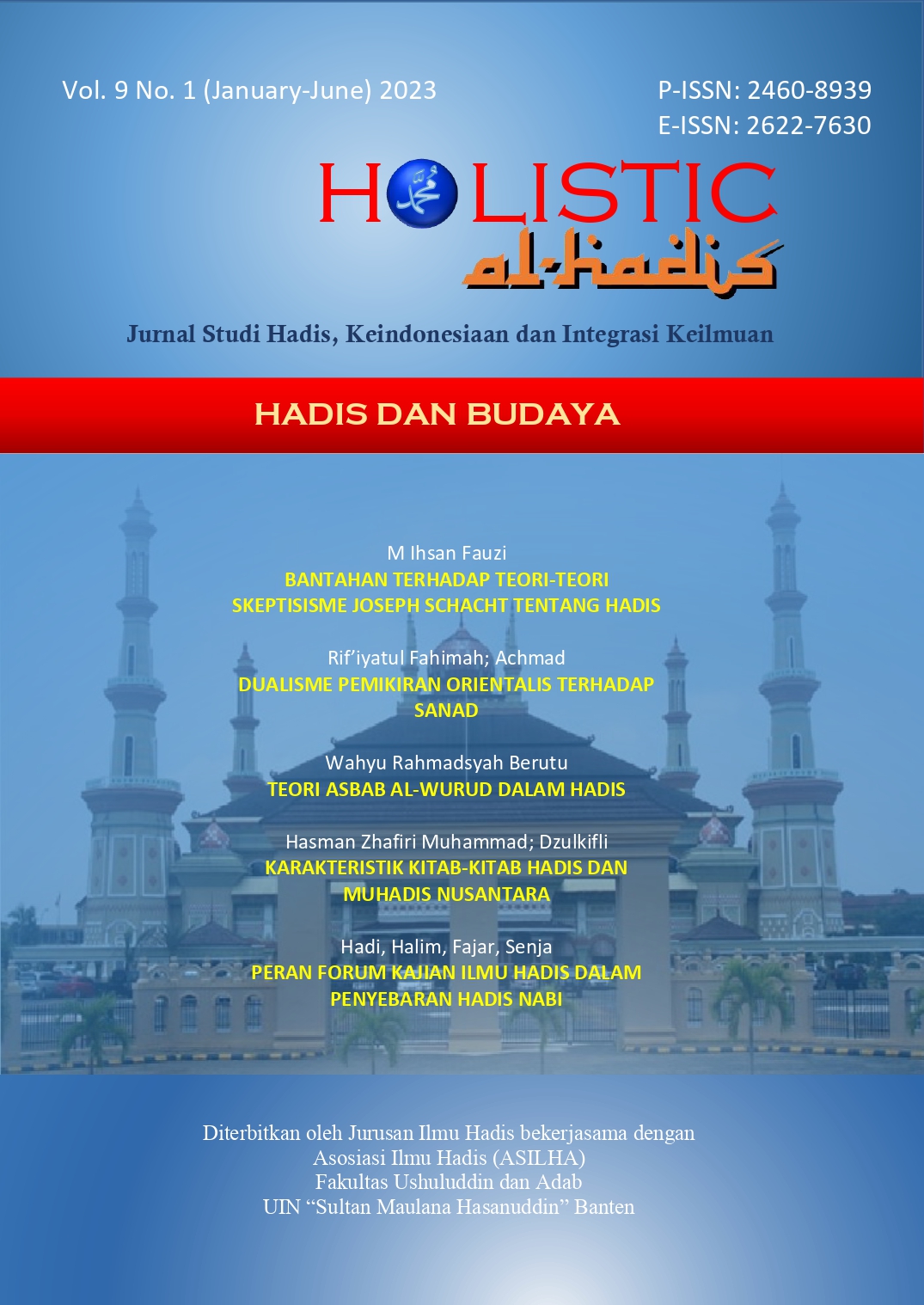DUALISME PEMIKIRAN ORIENTALIS TERHADAP SANAD
DOI:
https://doi.org/10.32678/holistic.v9i1.8138Keywords:
Dualism, Orientalist, sanadAbstract
Since the presence of the Prophet, studies related to hadith have never been obsolete to discuss. Even today, there are not a few intellectuals who discuss hadith, in terms of sanad and matan. Among the groups that actively discuss hadith apart from Muslim intellectuals are the orientalists. There are objective orientalists who aim for intellectual progress, but there are also subjective orientalists whose goals have been contaminated with interests other than science and are also active in blaspheming the substance of Islam. This This qualitative literary article, using descriptive method, aims to explain the thoughts of orientalists regarding hadith, especially about sanad, so that it can be seen that there is a dualism of thought in the body of orientalists regarding sanad. According to Herbert Berg, the hadith orientalist thought model is classified into four groups namely, Skeptics represented by Ignaz and Schacht, Non-Skeptics represented by Abbott, Midlle Ground (middle position) represented by Jyunboll and Motzki then Neo-Skepticism represented by Cook and Calder. However, broadly speaking, these four groups can be merged into two groups, namely skeptics who deny the validity of sanad, such as Ignaz Goldziher and Schacht, who view that only matan has useful historical information, whereas sanad is very limited in terms of its historical value. The second group, namely non-skeptics who are Muslim scholars and some Western scholars (orientalists) such as Nabia Abbott and Harald Motzki view sanad as useful historical information.
Downloads
Downloads
Published
Versions
- 2023-06-25 (4)
- 2023-06-25 (2)
- 2023-06-25 (1)
Issue
Section
License
Copyright (c) 2023 Rif’iyatul Fahimah

This work is licensed under a Creative Commons Attribution 4.0 International License.
Authors who publish with this journal agree to the following terms:
-
Authors retain copyright and grant the journal right of first publication with the work simultaneously licensed under a Creative Commons Attribution License that allows others to share the work with an acknowledgement of the work's authorship and initial publication in this journal.
-
Authors are able to enter into separate, additional contractual arrangements for the non-exclusive distribution of the journal's published version of the work (e.g., post it to an institutional repository or publish it in a book), with an acknowledgement of its initial publication in this journal.
-
Authors are permitted and encouraged to post their work online (e.g., in institutional repositories or on their website) prior to and during the submission process, as it can lead to productive exchanges, as well as earlier and greater citation of published work (See The Effect of Open Access).


















